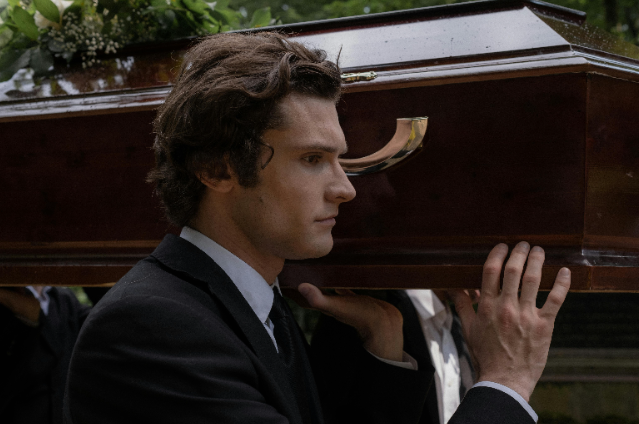
I bet you all would have thought at least once,
‘I wish I could have said Goodbye!’
Whether it be about lost friends, partners, or loved ones, we humans always beg the universe to give us one more chance to listen, to speak, and to just say a final goodbye. After all, we are story-driven creatures! From breakups left unexplained to unfinished conversations echoing in memory, we crave endings.
Closure is like a semicolon. We all want to say goodbye and put a final full stop to that painful story, but in reality, it acts as a semicolon, putting a pause for now, but it will continue to come back and pinch us later. But why are we so desperate for a last conversation? Why don’t we just forget and move on? Do we really need it for our survival? Through this article, I will try to explore this human urge.
Closure is the emotional ending we seek after a significant event ends, be it a 5-year-long relationship, a chapter of life, or even a story. It’s like we want to make sense of what just happened, trying to give it meaning, and restore our mental peace. We desperately try to understand why someone left us, especially when we meant the world to them till just yesterday; or trying to hold our tears when you leave your home while leaving for college or work; or in the smallest of cases, why someone didn’t answer our text for a few days or weeks. Since our life is greatly influenced by films, take it like, we all want to say goodbye as the Avengers said to Tony Stark in Endgame. But that’s the thing about movies and storybooks, they all have good endings, and our life doesn’t. From another perspective, that’s the beauty of life!
We humans have always worked on trying to fix what happened. For eg, funerals and spiritual ceremonies allow us to say goodbye to our loved ones after they die; graduation ceremonies allow students to relive and remember the school or college where they spent years shaping their future; or breakup rituals, like deleting photos on your mobile phone, removing belongings of the other person and tearing letters you wrote to each other. These rituals help us process endings, realise what happened, learn from it, and move on. Or do they?
Closure provides clarity, catharsis, and emotional satisfaction. Otherwise, we find ourselves emotionally stuck, confused, anxious, and unable to move forward, often living out days, weeks, and months in nostalgia. Without it, the sentence feels unfinished, with our mind running in a circle as a horse bound to a rope. The mind wants and is wired to complete patterns, both visually and emotionally. The thing with incomplete moments is that they try to recur in our lives through various means, or we try to make them recur. It can be feeling the same stream of emotions while doing a particular task, remembering those moments in dreams, or something else.
The Gestalt principle of closure explains how we mentally fill in the blanks to make sense of incomplete stories. It gives us a lot of discomfort if we don’t put in this last piece of the puzzle. This is also called the Zeigarnik Effect, which tells how incomplete tasks stick in our memory more than completed ones. When our beliefs and experiences clash, we experience a mental battle, a psychological tension. For eg, the last time someone left you, you would have thought for hours and days about what went wrong. While you both were together, everything was fine, then what made it go wrong? You would have felt thoughts from both perspectives gushing into your brain. And at the end of the day, you would conclude that all you need is ‘One Final Conversation and a Chance to Say Goodbye!’
As said earlier, sometimes having no closure makes life beautiful. It sets you off on a journey to rediscover your spark, follow your goals, and remember those moments as learning hurdles. And let’s just accept the fact that there can’t be any last goodbyes for any relationship after it's ended, although we get stuck in ‘frozen grief.’ But it is this acceptance that hurts. In fact, the moment you hear someone say, ‘Just accept it,’ it triggers your soul, which hasn’t even begun repairing itself.
This ambiguity after something ends, while painful, can foster resilience, creativity, and emotional intelligence. People who learn to coexist, or even better move on, with these unanswered questions often develop a greater understanding of emotional situations, appreciate the complexity of life, and become capable of listening and sympathising with others’ unresolved emotions. For eg, in Life of Pi, Pi never learns the truth of his survival, but finds meaning in his life eventually. We may have often channelled this unresolved grief into activism, art, or mentorship.
One of the greatest myths is that closure means forgetting. No, closure does not mean forgetting the event as a nightmare and moving on, as said in movies! I believe that you should always remember it and learn from it. Such events always come with their learnings, which help us in the long run. It allows you to integrate the experience into your life. A year or two later, you will remember the event with a smile, thanking God for the valuable life lessons you got. I swear it!
Ghosted goodbyes, abrupt endings, unfinished chapters, and so much more, they always leave uninvited suspense, as if floating on a log of wood in the vast ocean. But perhaps the wisdom lies not in receiving closure, but in moulding ourselves into better humans. It’s about choosing peace over certainty. At the end, you have only two options: either to stay stuck with the memories or build a better life for yourself and others struggling with similar issues. The choice is yours!
